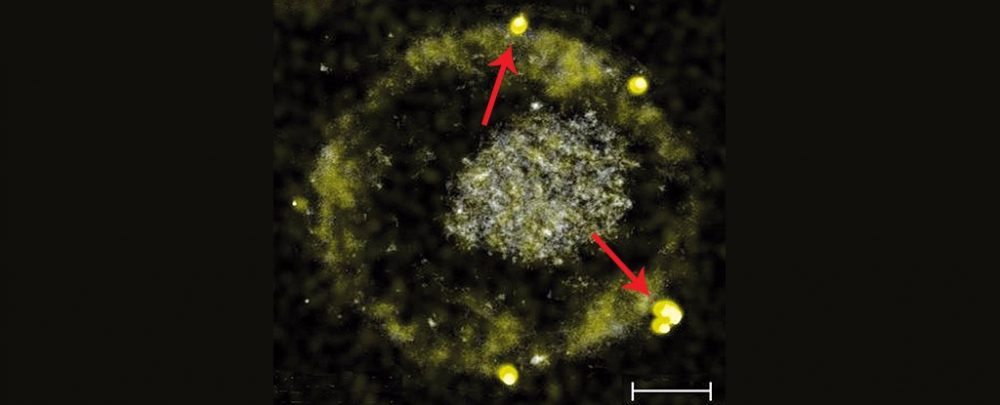According to legend, the philosopher’s stone was a substance that could turn ordinary metals into precious metals, such as gold and silver. For a long time, finding this magical stone was the most sought-after goal in the world of alchemy, the medieval ancestor of chemistry.
Now, a team of German and Australian researchers has found out that a bacterium could be a modern-day philosopher’s stone.
The researchers, from Martin Luther University Halle-Wittenberg, the Technical University of Munich, and the University of Adelaide, have discovered a special survival skill possessed by Cupriavidus metallidurans. This metal-tolerant bacterium lives in soils rich in heavy metals. To avoid being poisoned by these heavy metals, which are deadly to other creatures, C. metallidurans consumes the metals and excretes microscopic gold nuggets.
The researchers hope to understand the process better to obtain nontoxic gold in a much easier and safer manner. Generally, in order to extract gold from ores, highly toxic mercury is used in processing the ore. The overall process is very hazardous. The leftover mercury contaminates the waterways and a poses a significant environmental hazard.
Researchers say that once this new process for generating gold is perfected, the metal produced could be used for any purpose.







